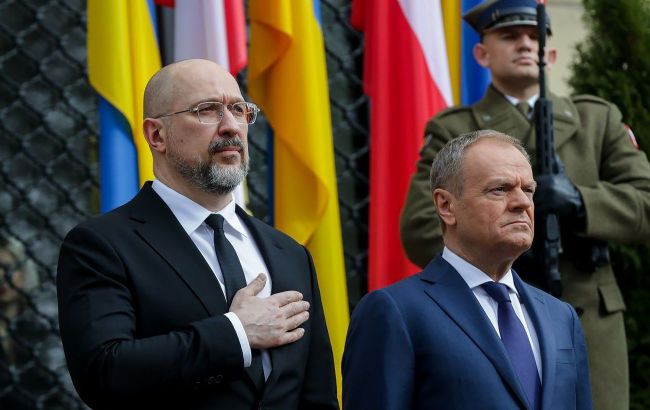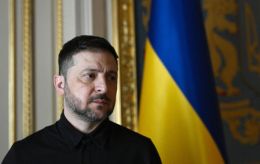Compromise, screening, export ban for Russia: How Ukraine and Poland resolve border issues
 Ukrainian Prime Minister Denys Shmyhal and Polish Prime Minister Donald Tusk (t.me/DenysSmyhal)
Ukrainian Prime Minister Denys Shmyhal and Polish Prime Minister Donald Tusk (t.me/DenysSmyhal)
Ukraine and Poland are working to resolve the heated issue of Ukrainian agricultural products in the Polish market. There is progress on implementing five steps, says Ukrainian Prime Minister Denys Shmyhal at a press conference in Warsaw.
First step
The first step involves Ukraine agreeing to certain restrictions and preventive measures proposed by the European Commission. "This is not a very enjoyable story for us, but we agree that this compromise is necessary for our countries so that agricultural exports from Ukraine do not harm Polish agricultural business," Shmyhal said after negotiations with Polish Prime Minister Donald Tusk.
He explains that Ukrainian grain does not enter the Polish market now. "Our government has introduced a verification procedure for four grain crops: corn, rapeseed, sunflower, and wheat. Export does not happen without a license, and we are not issuing such permits now, we will issue them with the consent of the Polish government," he said.
Second step
"Ukraine has appealed to the European Commission with a proposal to conduct an urgent screening, that is an analysis of legislation in agricultural policy and transport. We are open, we want to remove any manipulations, myths, and disinformation actively used by our enemy, Russia," said Shmyhal.
According to him, the analysis will be conducted by the end of April, revealing all statistics and providing truthful data.
Third step
Shmyhal reports that the third step involves banning agricultural exports from Russia and Belarus. "We proposed to Poland to unite our efforts to accomplish this task," he said.
According to him, Brussels heard Ukraine, and the European Commission proposed increasing tariffs on products from Russia. "The new rates are intended to basically stop this trade," added the Prime Minister.
Fourth step
Shmyhal announced plans to create a crisis management team to address trade issues between Ukraine and Poland.
Fifth step
Ukraine is requesting a free pass through the blocked border not only for ammunition and humanitarian aid but also for fuel. "It is important as it directly relates to national security matters," said Shmyhal.
Polish farmers have been blocking checkpoints on the border with Ukraine since February, demanding the cancellation of free trade with Ukraine. The Polish authorities support the farmers.
As of March 28, Polish farmers continue to block two directions. These are the crossing points Yahodyn and Rava-Ruska. Previously, six out of nine checkpoints on the border with Ukraine were blocked.

